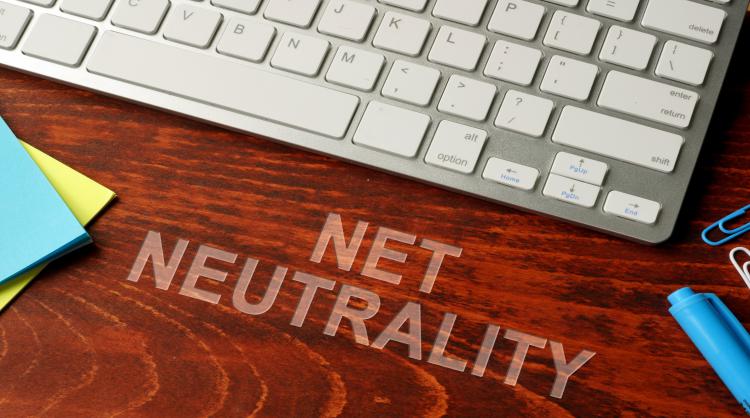FCC and FTC Strike Agreement to "Save" Consumers from Net Neutrality Loss
December 15, 2017 | by Andrew Regitsky

There is no question that FCC Chairman Ajit Pai is feeling the heat for his agency voting 3-2 to eliminate the 2015 net neutrality rules. The new "Light Regulation" or as some would call "No Regulation" Internet Order ("Order) is scheduled to become effective early next year unless stayed by a court (more about that later).
We know Pai is under the gun because earlier this week his FCC issued a draft Memorandum of Understanding (MOU) explaining how the Commission will work jointly with the Federal Trade Commission (FTC) to protect consumers on a case-by-case basis when a complaint is filed against an ISP. The MOU will become effective on the effective date of the Order
Before we discuss why we believe the MOU to be virtually useless, here are some of its key points:
Consistent with its jurisdiction and to fulfill its duties under Section 257 of the Communications Act, among other provisions, the FCC will monitor the broadband market and identify market entry barriers by, among other activities, reviewing informal complaints filed by consumers, and will investigate and take enforcement action as appropriate with respect to failures by an Internet service provider to comply, in whole or in part, with the Internet Freedom Order’s requirements to file with the FCC or display on a publicly available, easily accessible website the specified subjects of disclosure.
Consistent with its jurisdiction, the FTC will investigate and take enforcement action as appropriate against Internet service providers for unfair, deceptive, or otherwise unlawful acts or practices, including but not limited to, actions pertaining to the accuracy of the disclosures such providers make pursuant to the Internet Freedom Order’s requirements, as well as their marketing, advertising, and promotional activities.
The Agencies will discuss potential investigations against Internet service providers that could arise under each agency’s jurisdiction, and coordinate such activities to promote consistency in law enforcement and to prevent duplicative or conflicting actions, to the extent appropriate and consistent with law.
To further support coordination and cooperation on these matters, the Agencies will continue to work together to protect consumers, including through consultation on investigations or enforcement actions that implicate the jurisdiction of the other agency, sharing of relevant investigative techniques and tools, intelligence, technical and legal expertise, and best practices in response to reasonable requests for such assistance from either Agency, and collaboration on consumer and industry outreach and education efforts, as appropriate.
The MOU was clearly designed to reassure the public it will be protected from ISPs soon to be permitted to block, degrade or prioritize for pay certain Internet traffic. However, when the new rules for ISPs take effect, these so-called bright line rules are eliminated, and ISPs are free to treat Internet traffic in any fashion they choose, as long as they are transparent about it.
In other words, consumer complaints about specific ISP programs, policies, plans, or actions are really about whether the ISP made its actions public as required rather than whether those actions are legal. What a tough mountain to climb for ISPs. Not!
The only reason the FCC was forced to come up with this meaningless document is because it inexplicably decided to remove itself almost completely from regulating the Internet. It could have met most of its deregulatory goals by eliminating the bright line rules, and classified broadband Internet access as an information service while continuing to regulate the Internet under section 706 of the Telecommunications Act. That approach was already found to be lawful by the DC Circuit Court. However, in perhaps its most puzzling decision, this Commission claimed that even section 706 provided no legal justification for it to regulate the Internet.
Therefore, in its mad dash to eliminate all Internet regulations, the FCC has now turned over all enforcement of Internet bad actors to the FTC, an agency that can only bring antitrust laws to govern the Internet and seems equally disinterested in Internet regulation as the FCC.
If Pai hoped to spur Congress to take action to permanently "fix" net neutrality (which is my suspicion), it looks like he will be very disappointed. Congress has become a partisan clown show with each side interested solely in demonstrating how the 2016 election was influenced by the evil other side working with the Russians. There appears to be little appetite for developing a net neutrality compromise.
The best and only realistic hope for those supporting net neutrality is for the DC Circuit Court to issue a stay of the Order when it is appealed. In our opinion, because the Commission's attempt to reclassify broadband Internet access service comes only two years since the last reclassification and the possible damage to the public that might entail if the bright line rules are removed, make the Order ripe for a stay. Of course, all those reasons would not be enough if the DC Circuit was not packed with Democratic judges during the last years of the Obama administration.
Those judges, like so many others might be thrilled with a chance to put it to Trump. Had the FCC stuck with section 706, such a political response would have been much more difficult. Thus, the key takeaway so far, the battle over net neutrality is far from over.

